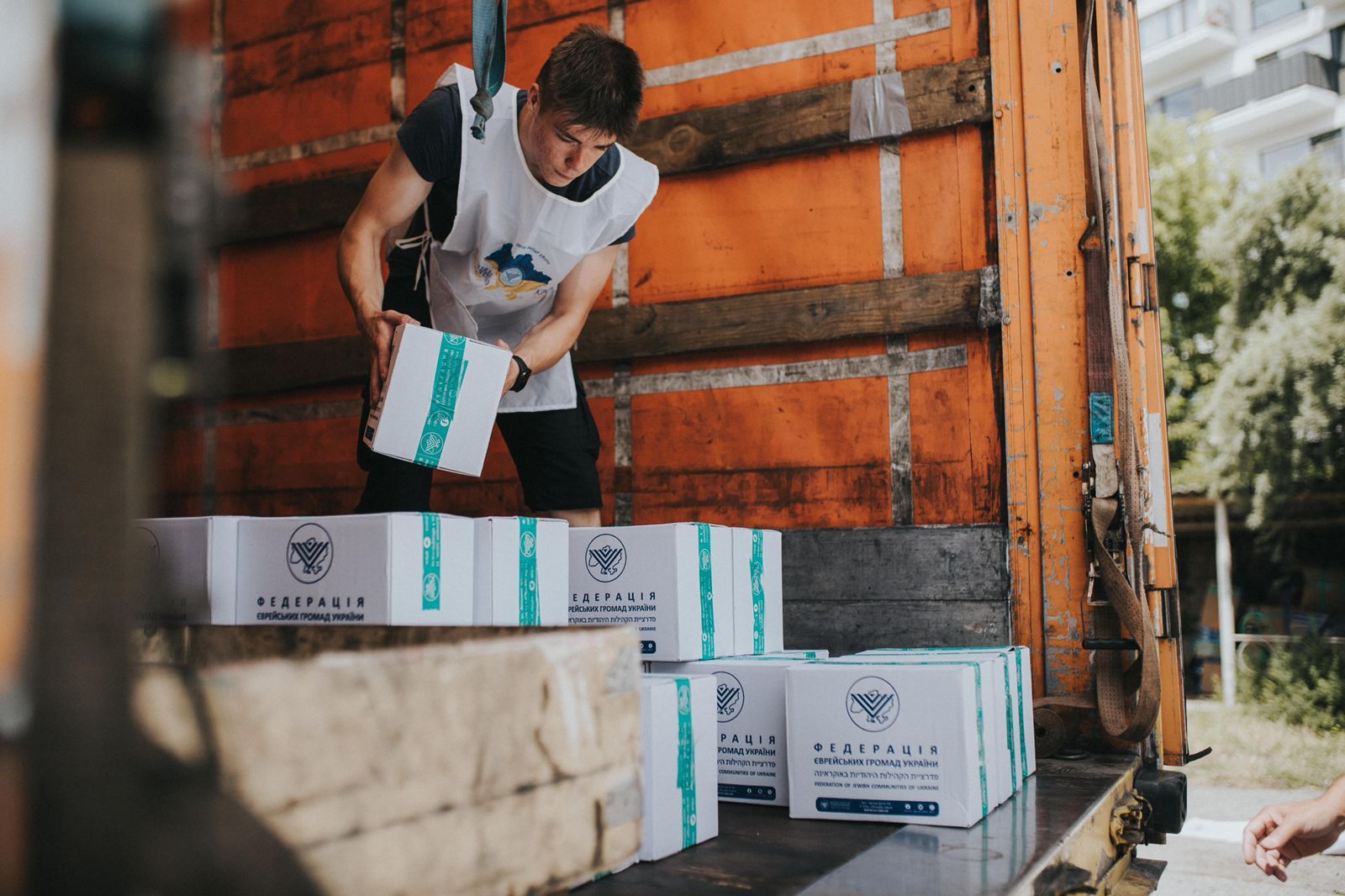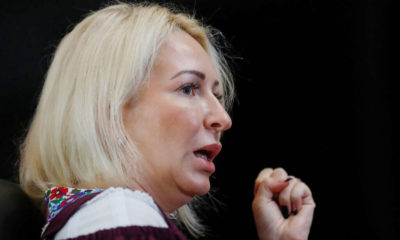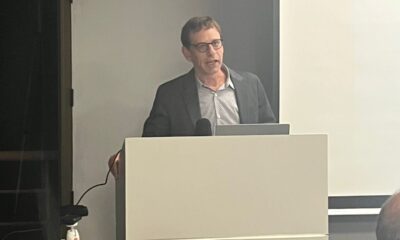
Banner

War and perseverance in Ukraine
Three years after South African filmmaker Ronnie Apteker fled Ukraine as Russia invaded on 24 February 2022, he is back in his beloved city of Kyiv, making a documentary about ordinary people living in the shadow of war. While he remains positive and defiant, it’s the fleeting moments of living in this horrific limbo that affect him the most.
In a blog post on 19 October 2024, Apteker wrote about seeing a little boy say goodbye to his father who was heading off to fight on the frontline. This horrific image, plucked from history, affected him deeply.
“Last week Monday, I was at the train station in Kyiv, and I saw something that made me cry,” wrote Apteker. “There was a little boy saying goodbye to his dad on the platform. The boy’s mom had her arms around her son, and they were all crouched down, and I saw tears rolling down the boy’s cheeks. That little boy knew something was not right. When will he see his dad again?
“It’s all so hard on the soul,” Apteker wrote. “What kind of a world are we living in? The Russian war on Ukraine is pure evil. The world just watches. Life goes on, but the pain and trauma are everywhere. The war is tearing families apart, and so many people are exhausted and traumatised.”
Meanwhile in Kharkiv, Sora Levinson, whose brother, Rabbi Levi Silman, lives in Cape Town, has also returned to the city after fleeing in the early days of the war. “There are a lot of mixed feelings,” she says. “On the one hand, looking back three years ago, we didn’t know if we’d ever be back, we didn’t know the future, we didn’t know what would be left of our community, what would be left of our home.”
She’s thankful to be back and able to help the community. “Thank G-d there is a community,” she says, “but it’s painful to look back and say three years have gone, and this hasn’t ended, and there are many people who have suffered losses. This is on top of the war in Israel, which is extremely painful for us. We’re praying for peace and for Moshiach now.”
Rebbetzin Rochi Levitansky was born and raised in Johannesburg and lives with her family in Sumy, near the Russian border. “When we left Ukraine at the beginning of the war, we were sure we would be back for Purim a few weeks later, and now we are at three years,” she says in her South African accent.
“People are so tired of the war and there’s just so much tragedy, hurt, and pain,” she says. “Kids aren’t growing up as kids should. It’s been three years of Corona [the COVID-19 pandemic] and three years of war. So, for any child, it’s been a long time since they had regular classes and playdates.”
However, Jewish life in Sumy remains strong. “We have full weekly classes, big Shabbos dinners, high shul attendance daily, weekly kids’ programmes, and Batmitzvah clubs,” Levitansky says. “The community is continuing. Everyone helps each other. We’re grateful for the support from South Africa and around the world.”
Oksana Nelina has remained in her hometown of Odesa throughout the war. “Living in Odesa as well as in any other Ukrainian city during the war is a surreal experience,” she says. “Odesa, once a sanctuary for internally displaced Ukrainians, now faces regular Russian bombardments. Each air-raid alert sends me, my family, and Odesa’s Jewish community scrambling for safety. Curfews and restrictions are part of daily life, but commercial and social activities persist. It’s about resilience. We just do what we need to do to live another day and save our land.”
In addition, Nelina says she’s thinking about friends and colleagues in Israel. “It’s essential to show support for each other, especially if you are part of the global Jewish peoplehood. Every Jewish Ukrainian is living ‘two wars’, and it’s much harder to overcome the news from both and the world’s acceptance of the cruelty of Russian and Hamas terrorists.”
As Ukraine marks three years since the full-scale war began, “it’s crucial for the world to understand that Ukrainians continue to adapt and resist”, Nelina says. “The international community’s support remains vital. The war enters its fourth year with increased hostilities targeting civilian infrastructure and significant displacement. It’s ongoing war in the middle of Europe, and the world should do more to stop it. Because tomorrow, the war could knock at your door, and the entire world would be silent.”
Rabbi Meir Stambler, the head of the Federation of Jewish Communities of Ukraine (FJCU), told the SA Jewish Report from Dnipro that the biggest challenge was seeing families torn apart. In addition, people are struggling financially, with businesses “crushed”.
“Who would think it would take so long [for the war to end]?” he asks. “Almost every second night, we are being bombed. The positive side is that Jews who never practiced before are now coming to shul, to the community centre, to Chabad House, to the schools.”
With Israel also at war, “there are two wars that we’re involved in. On a practical level, it’s hard to raise money because Jews around the world care about Israel, which we understand. Even we donate [to Israel] in spite of the fact that we need a lot over here as well. We want the world to know that the war is going on and it’s tough. The aggressor must be stopped.”
Apteker resists Russia’s attempt to obliterate Ukraine by living a full life in Kyiv, raising his son with his Ukrainian wife at his side, and making a film that will bring Ukraine to the world. Titled We Are Ukraine: The Dream, The Nightmare, The Change, it’s a story about ordinary people in an extraordinary time.
“It’s about people who have chosen to continue to work, get married, have babies, to continue to live and laugh against all odds,” writes Apteker. “It’s not a war story. It’s not a story about death and demise. It’s a story about life, a story that will make you laugh, cry, and realise that, in the end, we all want the same things: love; security; and freedom.”










